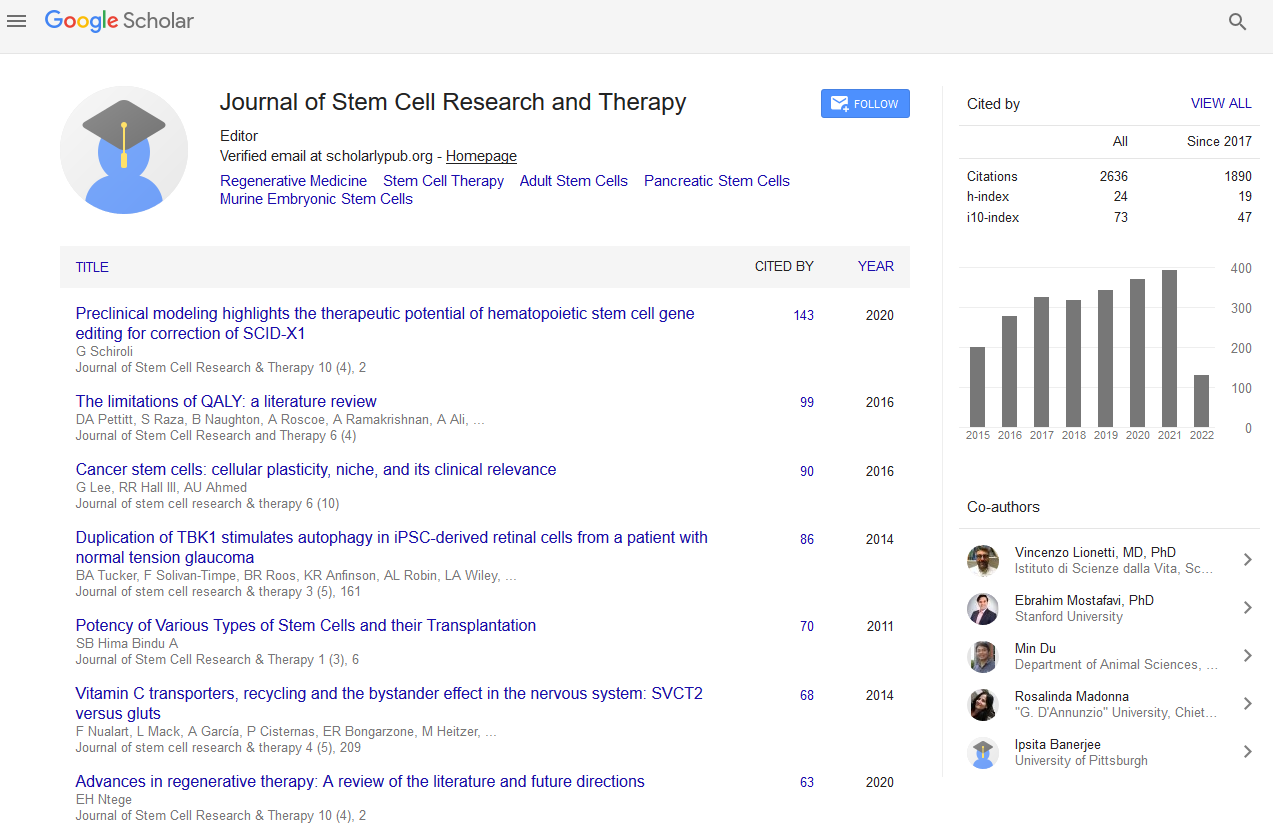Indexed In
- Open J Gate
- Genamics JournalSeek
- Academic Keys
- JournalTOCs
- China National Knowledge Infrastructure (CNKI)
- Ulrich's Periodicals Directory
- RefSeek
- Hamdard University
- EBSCO A-Z
- Directory of Abstract Indexing for Journals
- OCLC- WorldCat
- Publons
- Geneva Foundation for Medical Education and Research
- Euro Pub
- Google Scholar
Useful Links
Share This Page
Journal Flyer

Open Access Journals
- Agri and Aquaculture
- Biochemistry
- Bioinformatics & Systems Biology
- Business & Management
- Chemistry
- Clinical Sciences
- Engineering
- Food & Nutrition
- General Science
- Genetics & Molecular Biology
- Immunology & Microbiology
- Medical Sciences
- Neuroscience & Psychology
- Nursing & Health Care
- Pharmaceutical Sciences
The mitochondria and reactive oxygen species on the disease formation and prevention
3rd International Conference and Exhibition on Cell & Gene Therapy
October 27-29, 2014 Embassy Suites Las Vegas, USA
Yavuz Cakir
Scientific Tracks Abstracts: J Stem Cell Res Ther
Abstract:
There is growing evidence that many forms of diseases including cancer, diabetes, obesity, atherosclerosis, Multiple Sclerosis and Alzheimer?s disease can be initiated by free radical mediated events or oxidant stress. A cellular source and target of free radical or reactive oxygen species (ROS) production and damage is the mitochondrion. The interaction of mitochondria with ROS modulates cell-signaling pathways and molecular events that control ROS production. Because mitochondria are essential for multiple cell functions, including energy production, redox signaling, cell growth, proliferation, and apoptosis, ROS induce mitochondrial damage and dysfunction in various cells. The effects of ROS on the cells can vary. Under oxidative stress, cycling cells show cell cycle checkpoint responses with a wide array of different mechanisms to block or repair the damage caused by ROS to maintain genomic stability. These mechanisms consist of oxidative response enzymes such as SOD, catalase and glutathione peroxidase (GSH-Px), MPO, iNOS, antioxidants, DNA repair enzymes. However, high levels of unregulated ROS severely impair cellular functions by inducing DNA damage and signaling cascades. Eating disorders and obesity may abnormally increase the amount of ROS and induce disease formation. Caloric restriction on animals and humans reduces the production of ROS and even prolongs the human and animal life. It seems therefore that although a balance between the activation and adaptation of several mechanisms controlled by oxidative signaling occurs, in many chronic diseases these adapted systems are more likely to respond in an abnormal manner under oxidative conditions.
Biography :
Yavuz Cakir has completed his PhD at the University of Tennessee and Postdoctoral studies at University of Alabama at Birmingham. He has more than 10 years experience in preclinical and basic research, academic medicine and clinical and laboratory sciences. He conducted research on the mitochondrial diseases and published several articles. His focus is on the cancer, aging, mitochondrial DNA damage, cardiovascular diseases, atherosclerosis, ethanol metabolism, free radicals and caloric restriction.


